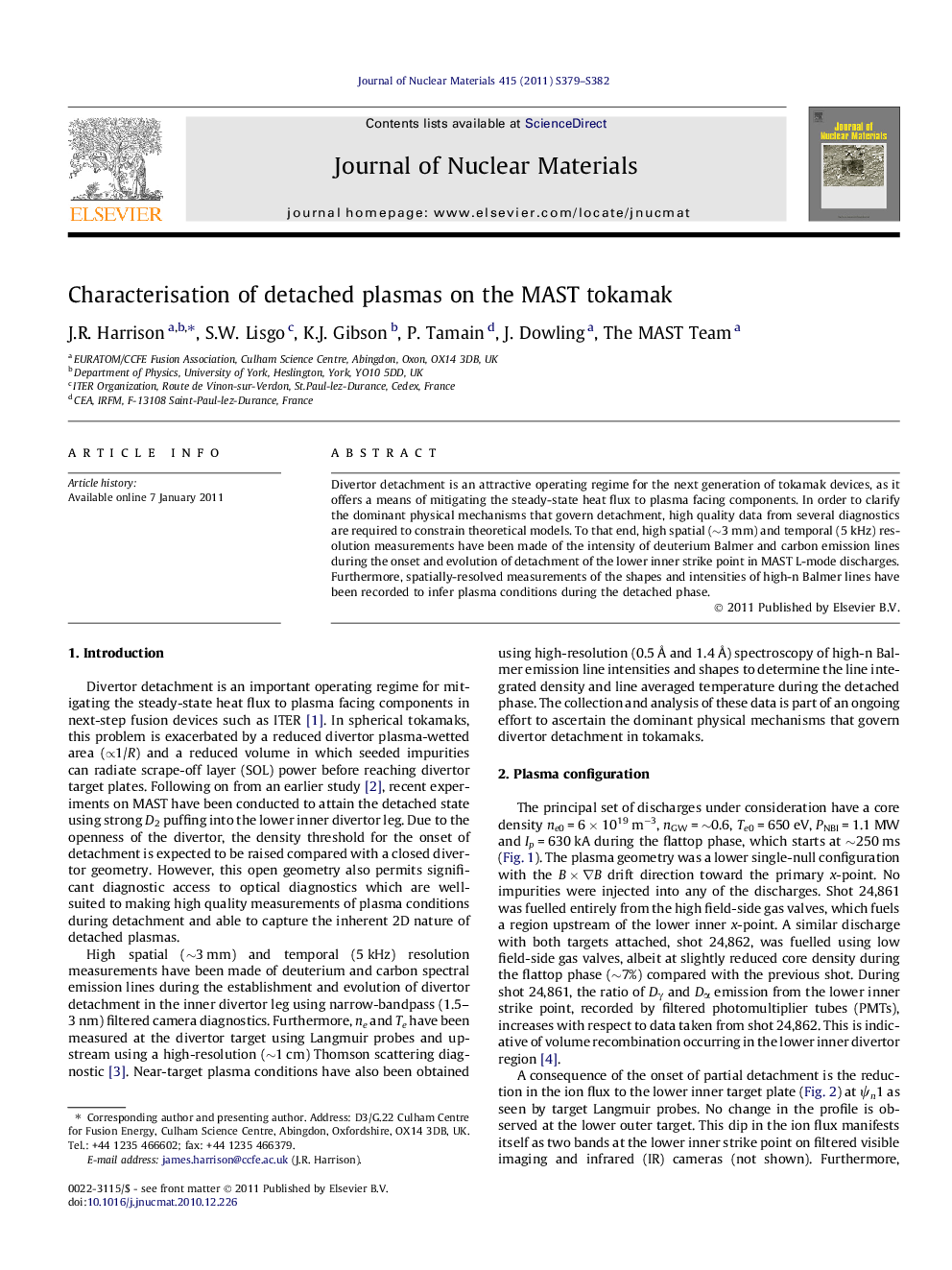| Article ID | Journal | Published Year | Pages | File Type |
|---|---|---|---|---|
| 10645125 | Journal of Nuclear Materials | 2011 | 4 Pages |
Abstract
Divertor detachment is an attractive operating regime for the next generation of tokamak devices, as it offers a means of mitigating the steady-state heat flux to plasma facing components. In order to clarify the dominant physical mechanisms that govern detachment, high quality data from several diagnostics are required to constrain theoretical models. To that end, high spatial (â¼3Â mm) and temporal (5Â kHz) resolution measurements have been made of the intensity of deuterium Balmer and carbon emission lines during the onset and evolution of detachment of the lower inner strike point in MAST L-mode discharges. Furthermore, spatially-resolved measurements of the shapes and intensities of high-n Balmer lines have been recorded to infer plasma conditions during the detached phase.
Related Topics
Physical Sciences and Engineering
Energy
Nuclear Energy and Engineering
Authors
J.R. Harrison, S.W. Lisgo, K.J. Gibson, P. Tamain, J. Dowling, The MAST Team The MAST Team,
